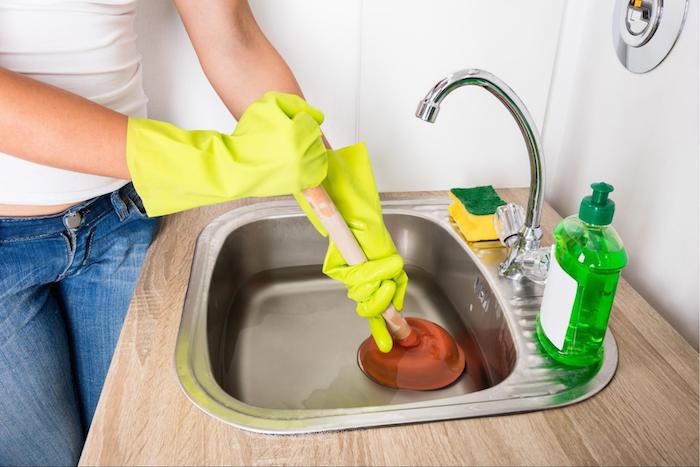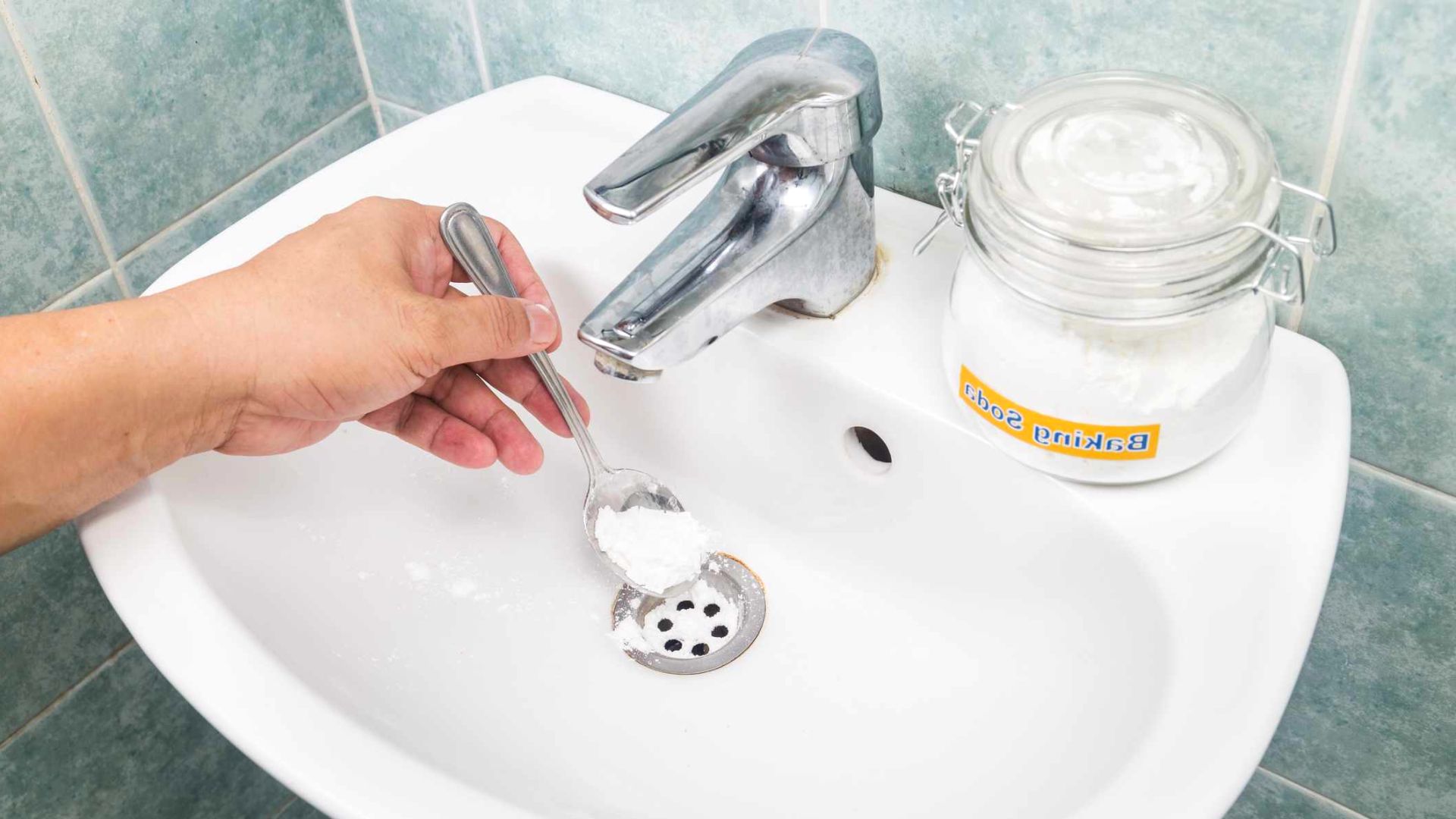Techniques To Effortlessly Address A Slow-Draining Sink
Techniques To Effortlessly Address A Slow-Draining Sink
Blog Article
Everybody will have their own unique thinking about 7 Ways To Fix A Slow-Draining Sink Before You Call A Plumber.

Intro
We have actually all been there: You're cleaning your teeth or washing your hands, and you observe the water pooling in the sink. Instead of swiftly swirling away, it remains, turning your once-refreshing early morning regimen into a miniature overload scene. A slow-draining sink isn't simply irritating; it's frequently a sign of larger plumbing issues hiding underneath the surface. The good news is that a lot of slow-draining sinks can be fixed with a little expertise, a few fundamental devices, and some persistence. Prepared to tackle this task head-on? Let's roll up our sleeves and dive right in.
Understanding the Causes of a Slow-Draining Sink
Before you begin poking around in your pipelines, it assists to understand what might be triggering the slowdown. Comprehending the root cause makes it simpler to choose the right fix.
Usual Culprits Behind Slow Drain
So, what's obstructing things up? Generally, it's a mixture of daily particles-- believe hair, soap residue, tooth paste residue, and leftover food bits. Gradually, these little bits accumulate and hold on to the pipeline wall surfaces, slowly narrowing the passage and making it harder for water to pass through. In many cases, natural resource from difficult water can likewise contribute to the gunk, developing the excellent tornado for persistent blockages.
When is it Time to Take Action?
If you discover the water draining slower than usual, it's a good concept to interfere quicker instead of later. Waiting also long can cause complete obstructions, undesirable smells, and even pipe damage. If the water takes greater than a couple of seconds to clean out after turning off the tap, consider it a warning and get ready to place on your DIY hat.
Tools and Products You'll Need
The right tools make all the distinction. Luckily, you won't need a totally equipped plumbing's van to do the job.
Vital Devices for DIY Fixes
A plunger is your go-to beginning point. A tiny, sink-sized bettor develops suction that can remove minor blockages. For more consistent clogs, a drainpipe serpent (often called a plumbing professional's auger) functions wonders. A set of handwear covers, a flashlight, and perhaps a pair of safety goggles are also useful.
Recommended Cleansing Solutions
Light dish soap and warm water can aid break down greasy accumulation. A mixture of baking soft drink and vinegar is a reliable natural remedy, and chemical cleaners use a more environment-friendly strategy. Keep chemical drain cleaners as a last option, as they can be extreme on your pipelines.
Safety And Security First: Preventative Measures and Preparations
Before you launch into unclogging setting, think of safety. You're handling potentially filthy water and particles, so slip on a set of handwear covers. If you're using chemical cleaners, ensure the area is well-ventilated and adhere to the instructions on the label.
Protective Gear and Workspace Configuration
Put down some old towels or dustcloths around the sink area to catch splashes. Remove any type of products that might enter your method, like soap dispensers or toothbrush holders. Ensure you have good lights-- get a flashlight if needed.
Step-by-Step Overview to Fixing a Slow-Draining Sink
Currently, let's get into the nitty-gritty. This step-by-step procedure will assist you through basic techniques to restore your sink's drain.
Action 1: Eliminate and Tidy the Stopper
Frequently, the stopper (that little plug you lower to obstruct water) is the initial offender. Remove it meticulously and wipe any kind of hair or crud trapped around its base. Wash it completely prior to putting it back in position.
Action 2: Utilize a Plunger to Remove Particles
Got that bettor prepared? Position it over the drain and give it a few company pumps. The concept is to produce suction that can loosen any type of blockage. If you see little bits of debris drifting up, you're on the best track.
Step 3: Attempt a Drainpipe Snake or Wire Wall Mount
If the bettor doesn't do the trick, it's time to highlight the drain serpent. Delicately feed it right into the drain and twist as you go. You could feel some resistance-- that's most likely the blockage. Keep turning and pulling till you eliminate the blockage. If you do not have a drain snake, a corrected the alignment of wire wall mount can work in a pinch.
Tip 4: Use a DIY Drainpipe Cleaner
An all-natural cleaner made from cooking soda and vinegar can break down recurring crud. Pour half a cup of cooking soda right into the drain, followed by half a mug of vinegar. Let it fizz for about 15 minutes, after that flush with warm water. This chain reaction usually does wonders for small clogs.
Tip 5: Reassemble and Evaluate the Sink
Put whatever back with each other and run the tap. Does the water now swirl down the drain at a commendable speed? If yes, provide yourself a pat on the back. Otherwise, do not despair-- there are still a couple of even more dress up your sleeve.
Different Approaches for Stubborn Clogs
Not all blockages are developed equivalent. If your sink still declines to work together, think about these alternative remedies.
Sodium Bicarbonate and Vinegar Technique
We already discussed this, but it deserves noting once more. This gentle, environmentally friendly approach is safer than chemical cleansers and commonly quite efficient.
Chemical Drainpipe Cleaners
Enzyme-based cleansers make use of natural germs to digest raw material. They're an outstanding option if you're aiming to avoid extreme chemicals. Simply keep in mind, they might take a bit longer to work their magic.
Chemical Drain Cleaning Company: Advantages And Disadvantages
Chemical cleansers can blast with tough obstructions fast, however they're not without disadvantages. They can produce warmth and fumes, damages pipelines if utilized excessively, and position ecological threats. Utilize them moderately, and always follow the directions meticulously.
Safety Nets to Maintain Your Sink Flowing
Prevention is the best treatment. By taking on a few basic habits, you can keep your sink from decreasing to begin with.
Routine Cleansing Routines
Clean down the sink container and fixture area consistently. Get rid of hair or food particles prior to they have a chance to wash down the drain.
Avoiding Harmful Substances Down the Drain
Reconsider prior to discarding coffee premises, grease, or fibrous vegetable scraps down the sink. These culprits cling to pipeline wall surfaces, creating blockages gradually.
Regular Upkeep Checks
Set up a fast regular monthly inspection. Run hot water through the sink for a few mins, paying attention to the flow. If it appears slow-moving, act quickly before it ends up being a full-on blockage.
When to Call an Expert Plumber
Occasionally, no matter exactly how tough you try, that block simply will not budge. That's when it's time to generate the pros.
Indications That Suggest an Extra Serious Problem
If your sink drains slowly regardless of several attempts, or if you see water supporting in other components (like your shower or bathroom), you might have a much more serious plumbing concern hiding much deeper in the system.
Balancing DIY Initiatives with Expert Aid
While DIY can conserve you money and use a feeling of achievement, there's no embarassment in calling an expert. A specialist plumbing technician can analyze your entire plumbing arrangement, ensuring there's no underlying damage or long-lasting trouble that can cost you more in the future.
Contrasting Expenses and Long-Term Solutions
Prior to deciding, think about the big picture. A cheap, quick fix might solve the problem briefly, yet purchasing an extra permanent service could conserve you money and anxiety over time.
Weighing the Expenditures of Do It Yourself vs. Expert Fixes
Do it yourself fixes often set you back little bit more than the rate of a plunger or a bottle of baking soft drink. Professional solutions, on the other hand, included a price tag yet may avoid repetitive issues and pricey repair work later.
Investing in High Quality Fixtures and Upgrades
If your sink's style contributes to regular clogs, it could be worth upgrading to higher-quality fixtures or modifying the pipes format. Consider this an investment in your house's capability and convenience.
Verdict
A slow-draining sink can feel like a minor irritation, yet it's frequently an indication that your plumbing needs a little TLC. By comprehending the root causes, employing the right tools and techniques, and committing to simple preventive measures, you can maintain your sink streaming freely. And when all else fails, never ever wait to call a specialist-- your home's plumbing is worth the financial investment in care and maintenance.
Three Common Ways to Fix a Slow Drain
Baking Soda Method
Boil a full pot of water. Measure out cup of baking soda and pour it down the drain. Then take cup of the magical cleansing substance known as white vinegar and drop that down there too. Allow the mixture to fizz in the drain for five minutes as the vinegar and baking soda combine. Now dump in that whole pot of boiling water. This combination of cleaning substances should clear out anything that is causing your sink to drain slowly. If it doesn t...
Zip-It
If the baking soda method doesn t clear out your drain, it may be because a significant amount of hair and/or other debris has collected there and you need to remove it. Purchase a Zip-It tool at any home improvement or hardware store and insert it into your drain. It will catch any collected hair or debris that s blocking the flow of water. Pull it out. If it s got a big clump of hair, etc. on the end, you ve probably got your culprit.
Drain Cleaner
If these methods don t work, there is the standard drain cleaner that you can also buy in a hardware store or even your local grocery store. It s better if you can use a household solution, but these drain cleaners often work in a pinch. They re very simple to use. You generally just dump them in your drain and wait. If even this method is not effective, it may be time to call the plumber.
https://www.mrrooter.com/oneida/about-us/blog/2017/july/three-common-ways-to-fix-a-slow-drain/

I came across that write up on when surfing the internet. Sharing is caring. Who knows, you may be helping someone out. Bless you for your time. Come back soon.
Set An Appointment Report this page